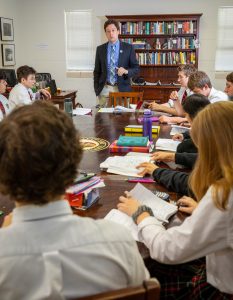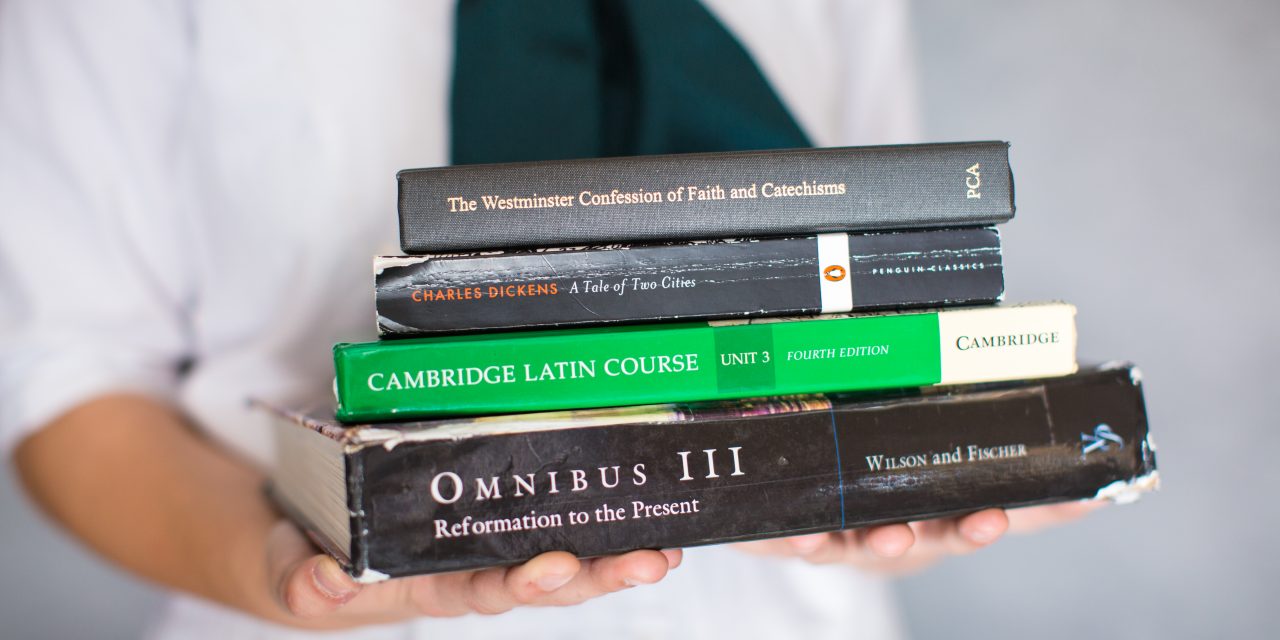by Chris Browne*
I recently finished reading Dante’s The Divine Comedy with my junior students and Homer’s The Odyssey with my seventh grade students. You will not find either on the reading lists of many high schools around the country, as both have been deemed too difficult or antiquated for young readers. If the rest of the world has given up on these books and others like them, then why haven’t classical Christian schools like ours? Wouldn’t we be better off assigning our students less difficult, easier to digest, and frankly, more enjoyable books?
Giving Students What They Need
 In a roundabout way, an article published in the The Wall Street Journal a few weeks ago gets at some of those answers. The article cites a tech company’s analysis of what kind of books kids enjoy reading. Not surprisingly, ninjas and dinosaurs are high on the list, while ethical philosophy and Trinitarian theology didn’t make the cut. The basic concern of the tech company involved is that they publish the kind of books kids want to read.
In a roundabout way, an article published in the The Wall Street Journal a few weeks ago gets at some of those answers. The article cites a tech company’s analysis of what kind of books kids enjoy reading. Not surprisingly, ninjas and dinosaurs are high on the list, while ethical philosophy and Trinitarian theology didn’t make the cut. The basic concern of the tech company involved is that they publish the kind of books kids want to read.
While the article is specifically about what the algorithms say kids enjoy, the underlying questions it raises apply to our student reading lists. Should we be primarily concerned with giving students what they want? Our job as parents and teachers is not to give our students what entertains them, but to give them what transforms them. We do not read The Aeneid with students because they want it; we read it with them so they might be shaped by the beauty and the great ideas it contains. Our job as parents and teachers is to cultivate in our students a taste for that good.
*Chris Browne, at the time of this writing, was 7th grade humanities & 11th grade co-teacher at The Ambrose School in Meridian, ID. He is currently heading a school in transition to the classical Christian model.










